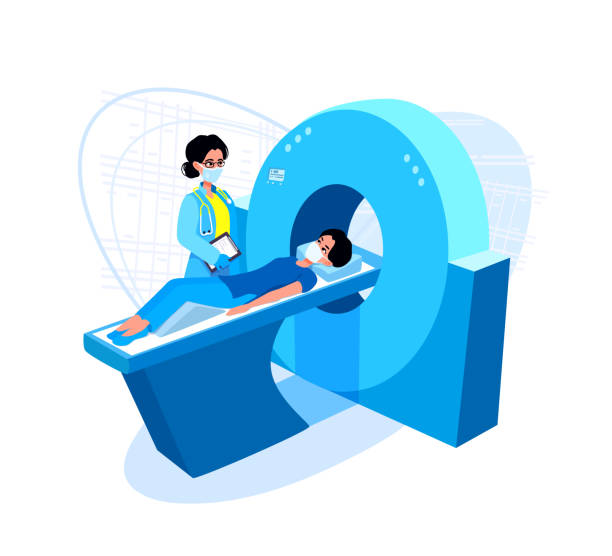Mon-Sat 9am-7pm











A sonographer works alongside several physicians and is employed as a healthcare provider. They work as a medical imaging professional and provide requested images to doctors in order to facilitate their diagnosis and treatment of patients. The position of a sonographer is specialized as it utilizes knowledge of medical terminology as well as specialized imaging technology.
Education for the position can vary greatly by state. Many colleges offer training through two-year associate degree courses, and certification is available through accredited intuitions. A sonographer works directly with patients, so a professional demeanor and interpersonal skills are essential. Additionally, they correspond with physicians to ensure the ideal treatment for patients, so an advanced understanding of human anatomy and medical terminology is required. Employees who excel in the position tend to be passionate about the field and are highly organized.

With a large aging population, the need to diagnose medical conditions using affordable imaging technology is likely to increase. Sonographers are needed to provide an alternative to radiation imaging techniques. The Bureau of Labor Statistics expects this profession to grow faster than average over the next decade. The average salary for a diagnostic medical sonographer is $75,380, with that figure dependent on experience, certification, and location.
With additional training and education, some sonographers may move into supervisory positions or become advanced sonographers. Earning an advanced degree will allow some sonographers to become educators and researchers.
The BLS found that in 2020, the median annual wage for diagnostic medical sonographers was about $75,920. Salaries for sonographers can vary depending on location, education and experience levels, and other factors.
One of the advantages of being an ultrasound technician is that you will earn a salary of around $70,380 per year. This is an excellent salary for somebody who is just starting their career in the healthcare field. If you choose to advance your education or certification, you can also expect your annual salary to increase. You have the potential to make an extremely comfortable life for yourself and your family with this type of salary.
When you are working in the field as an ultrasound technician, you will not be bored. You will be encountering something new every day. You will be working with patients who are all in need of an ultrasound for different reasons. Hey, who knows, maybe you will see something and learn something new. You will also have a variety of job duties that will also keep you busy throughout your day. All of the variety you will find in your work life is definitely one of the pros of being an ultrasound technician.
Depending on what setting you choose to work in, you can have the potential to have a very flexible and accommodating schedule. You can plan your everyday life around work. If you work 10- or 12-hour days, you can group your workdays together and get a good stretch of time off, all without using vacation time. Having such a flexible work schedule is one of the biggest advantages of being an ultrasound technician and can really give you such an outstanding work-life balance.
An ultrasound technician has the ability to work in many different career settings. Some of the areas that you will be able to work in are in-patient units in a hospital, outpatient units in a hospital, physician offices, medical and diagnostic laboratories, and in academia. So, essentially, if one setting does not mesh well with you, then you have the option to try another.
When you are working as an ultrasound technician, you will not be sitting behind a desk for the entire day like other careers. You will be on your feet moving all day long. While analyzing the pros and cons of being an ultrasound technician one of the factors that you may have to consider, is if your body will benefit or suffer from being on your feet all day. Keep in mind though, being so active at your job will definitely help keep you in shape.
If you choose an ultrasound technician career, you will find that you will always have a job. This is due to an aging population that is now living longer thanks to modern medicine. One tool that modern medicine consistently utilizes is ultrasound for diagnostics and interventions. This career is in such demand that it is projected to grow by 12% by 2029. The rate at which this field is growing is faster than other career paths. The fact that you are in such demand and will always have a job will make you breathe a sigh of relief.
The training program to earn a certificate to start working as an ultrasound tech is anywhere from 12-18months. If you need to get out there and join the workforce and do not have the time or the money to devote to a long education path, then this may be an excellent choice for you. The fact that you can start working after such a short educational and training period is one of the advantages of being an ultrasound technician. The beauty of this field is that you can start working with a certificate. If you feel like you want to pursue an associate's or a bachelor's degree, you can do so at your own pace.
Ultrasound is used in a variety of settings and various disciplines in healthcare. As an ultrasound technician, you can choose to pursue to specialize by earning additional certification. You can earn your certificate in abdominal and genitourinary sonography, breast sonography, cardiovascular and vascular sonography, echocardiography and pediatric, fetal echocardiography, musculoskeletal sonography, neurosonography, obstetric and gynecological sonography, ophthalmologic sonography, to name a few. Certifications will make you more marketable to employers. Many ultrasound technicians actually hold more than one certification which makes them extremely versatile and marketable.
An online educational program as an ultrasound technician will allow you to have a great deal of flexibility regarding earning your degree. One of the top pros of being an ultrasound technician is that earning your degree online will enable you to balance your personal life as well as your education. It may actually work out to be more cost-effective as well. You will not have commuting and parking fees if you are learning from home.
A career as an ultrasound technician is a well-respected career in the medical community and in society. You have the knowledge and skills that many people do not possess. Your career path has led you to a career that you will be viewed as a professional who is earning a fantastic living. Not too shabby of a deal.
One of the advantages of being an ultrasound technician and entering the healthcare environment is that an ultrasound technician can be utilized no matter where you are. So, keep that idea in mind, you could travel the country and earn a living at the same time. How, may you ask? Well, it is really simple, you would become known as a travel ultrasound technician. These jobs would allow for you to essentially earn money working a travel contract as an ultrasound technician while traveling to whatever places are on your bucket list.
Your job as an ultrasound technician will enable you to help many different people from many different walks of life. You will be there with people when they may experience the saddest moment of their lives or when they are experiencing the happiest moments of their lives. At the end of the day, you are helping to guide the proper and essential care that your patients require. Not everyone can say that about their job, but you can.
An ultrasound technician, by far, is one of the safest career choices in the medical field. Think about it; you are working with equipment that works off of sound waves in order to capture images. Other careers within the healthcare environment will be working with radiation and other harmful toxins. So, as far as safety goes, you will be sitting pretty. You will not be exposed to any potentially dangerous substances and therefore this is one of the pros of being an ultrasound technician.
:There are different entrance points into the career of an ultrasound technician. While starting to analyze the pros and cons of being an ultrasound technician you will need to determine which entry point into the career is right for you. One of these entrance points is earning a certificate right out of high school. On the pro side of earning a certificate, you could start working much sooner than earning an associate’s degree. On the con side of earning a certificate is that it will be difficult to find a job with only earning a certificate. Most employers will require an associate’s degree for you to work within their institution. Now, if you are starting with the associate's degree, you will need to ensure that the program you choose to attend is accredited by the Commission on Accreditation for Allied Health Education Programs (CAAHEP). The associate's degree will take an average of two years to complete.
If you want to further your career and not remain stagnant, the next step would be to earn your bachelor's degree. The bachelor's degree will take you an additional two years to four years to achieve. The length of time to complete your bachelor's will depend on the course you took for your associates. Not all of your coursework at the associate's level can be applied to your bachelor's degree. You may need to take courses over and take additional courses. This will mean more time and more money on your part.
In order to complete your education as an ultrasound technician, you will be required to complete an internship. This internship will be a supervised one, and you will work the same schedule as your preceptor. This internship will last three to six months which will depend on the requirements of the educational program you are attending. One of the disadvantages of being an ultrasound technician is that essentially you will be working for free.
If you are not the type of person who excels in the sciences and math courses, then this is not your educational career path. As an ultrasound technician, you will be expected to successfully pass numerous science and math courses as a requirement of your degree. These courses will become the foundation for further coursework and your career. Some of the courses you will be expected to successfully complete are biology, chemistry, anatomy, physiology, college physics, and college algebra.
When embarking on this career, one of the pros and cons of being an ultrasound technician that you will have to consider is if earning your certification in the field will make or break you. Certification is not required by law. However, most employers will not consider hiring you unless you are certified in the field. You will need to pass the Sonography Principles and Instrumentation exam (SPI exam) from the American Registry for Diagnostic Medical Sonography to gain certification. A lot rides on this exam, no pressure.
You know what they say, “nothing in life is free," well that definitely applies to your education and training to become an ultrasound technician. If you choose that you want to earn a certificate as an ultrasound technician, you will end up spending anywhere from $5,000 to $25,000. Earning an associate's degree will cost you anywhere from $6,000 to $40,000, and a bachelor's degree will cost anywhere from $30,000 to $48,000. The cost of these programs will vary depending on which program you choose to attend. Keep in mind these figures do not include your cost of living and other incidentals.
So, now that you know some of the figures regarding how much your education may cost you, how are you going to pay for it? I know educational loans sound like a good idea at the moment, but are they really? Yes, you will get the money to pay for your education, but you will be required to pay that money back with interest. These loans may land you in quite a bit of debt. The amount of money you will owe back to the lender is definitely one of the cons of being an ultrasound technician.
Unless you are able to obtain a job where you will be working five days a week in an outpatient setting, you may find yourself working an erratic schedule. Suppose you are working in the in-patient setting. In that case, you may find yourself working any combination of days, nights, weekends, weekdays, and holidays. You could be working anywhere from eight-hour shifts to 12 hours shifts. Having such an erratic schedule may mean that you will be missing out on events in your personal life. This erratic schedule is certainly one of the disadvantages of being an ultrasound technician.
As an ultrasound technician, you will be on your feet for the majority of your day. You will be walking from bedside to bedside to perform your scans. You will also most likely be standing during the scan as well. The Society of Diagnostic Medical Sonography (SDMS) reports that up to 90 percent of sonographers experience work-related musculoskeletal disorders. So, if you feel that you do not have the stamina for being on your feet for an entire day, multiple days in a row, then you should think about a different career path.
An ultrasound machine is quite a large piece of equipment that is pretty heavy despite being on wheels. Unfortunately for you, you will need to take this machine with you in order to perform your job. This means you will need to pull and push this machine all over. This can lead to sore muscles as well as strains and sprains. Let’s also hope that you do not run over your toes with it. Ouch!
Whenever you work in a job that requires that you work in a healthcare setting, you may become exposed to many different pathogens. Some of the people that you may be performing an ultrasound on may have highly contagious illnesses that you could become infected with. This will put you and your loved ones at risk of contracting these illnesses as well. I mean, who wants to go to work every day thinking they could be taking home a highly contagious and dangerous illness. The idea that your job can make you sick is one of the biggest disadvantages of being an ultrasound technician.
Anytime you work in a career centered around people’s lives, you will be exposed to high levels of stress. You may be experiencing the pressure of a high patient caseload that needs to be completed day in and day out, as well as the stress of trying to complete a possible problematic scan. As an ultrasound technician, you may be called to emergent situations where your findings may determine what life-saving measures must be instituted. Wow, that can make you sweat just thinking about it.
One of the top disadvantages of being an ultrasound technician is that you will be open to lawsuits just due to the nature of working in healthcare. Yes, we are all human, and humans make mistakes, but you can be sued for your errors. Nobody wants to be sued. A lawsuit can be life-altering and extremely expensive. It may be better to avoid the whole thing altogether and pursue a different career.
Sonographers work closely with patients as well as doctors and other co-workers in the health care field. Having the ability to communicate well, listen effectively, and exude compassion and empathy are a few key personal skills for a sonographer. Sonographers may be meeting with people who have been referred to them for possible conditions, so they may have questions or concerns or simply be a little uneasy going into the ultrasound. A sonographer needs the ability to make patients feel comfortable and be able to answer their questions. Attention to detail is also a helpful skill to have as a sonographer as the ability to detect abnormalities is key to this job.
Sonographers often work on their feet most of the day, so this is a profession that requires a level of physical stamina. You may be asked to move patients around while conducting an ultrasound. Excellent hand-eye coordination is needed when operating ultrasound equipment, as is actual knowledge and skill in the use of the equipment you’ll be using as a diagnostic medical sonographer.
Call us at +91 9205084085, Monday - Friday, 9 am - 7 pm


